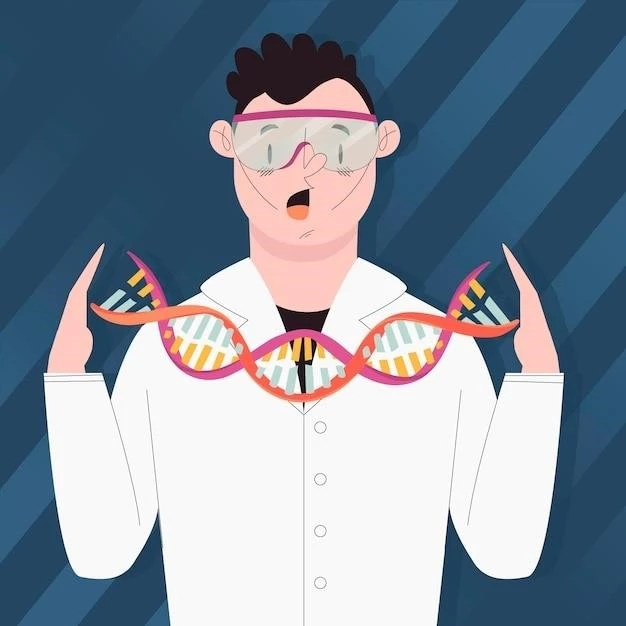Overview of Chromosome 22 Microdeletion Syndrome
Learn about the key aspects of Chromosome 22q11.2 Deletion Syndrome to understand this genetic condition better.
Introduction to Chromosome 22q11.2 Deletion Syndrome
Chromosome 22q11.2 Deletion Syndrome is a genetic disorder caused by the deletion of a small piece of chromosome 22. This condition can lead to a variety of health issues affecting multiple systems in the body. It is essential for individuals with this syndrome and their families to work closely with healthcare providers to understand the specific challenges they may face and to access appropriate support and resources. By gaining knowledge about the syndrome and its implications, individuals and families can better navigate the journey ahead and ensure the best possible outcomes for overall well-being.
Symptoms and Diagnosis of 22q11.2 Deletion Syndrome
Recognizing symptoms and obtaining a correct diagnosis are crucial steps in managing Chromosome 22q11.2 Deletion Syndrome effectively. Consult healthcare professionals for proper evaluation.
Recognizing Symptoms of Chromosome 22q11.2 Deletion
Recognizing symptoms early is vital for timely management. Symptoms may include heart defects, immune system problems, cleft palate, and learning difficulties. Seeking medical evaluation upon noticing any signs is crucial in ensuring appropriate care and support for individuals with Chromosome 22q11.2 Deletion Syndrome.
Diagnosing Chromosome 22q11.2 Deletion
Diagnosing Chromosome 22q11.2 Deletion Syndrome involves genetic testing٫ physical exams٫ and medical history review. Specialists like genetic counselors can help interpret results and guide families on appropriate interventions. Early diagnosis is key to planning personalized care strategies for individuals with this genetic condition٫ ensuring better management of symptoms and overall well-being.
Treatment Options for Chromosome 22q11.2 Deletion
Explore medical interventions to manage symptoms effectively. Consult healthcare professionals for personalized treatment plans.
Medical Interventions for Managing 22q11.2 Deletion Symptoms
Medical interventions for Chromosome 22q11.2 Deletion Syndrome aim to address specific symptoms like heart defects, immune issues, and cognitive challenges. Treatment may involve surgery, medications, therapies, and educational interventions tailored to individual needs. Collaborate with healthcare providers and specialists to create a comprehensive care plan that focuses on enhancing well-being and maximizing quality of life for those affected by this genetic condition.
Understanding the Genetic Causes of Microdeletion 22q11.2
Learn about the underlying genetic mechanisms contributing to Chromosome 22q11.2 Deletion Syndrome. Consult genetic specialists for detailed insights.
Genetic Mechanisms Behind Chromosome 22q11.2 Deletion
Chromosome 22q11.2 Deletion is caused by the deletion of a small piece of chromosome 22, leading to various health issues. Understanding the genetic mechanisms underlying this deletion can provide valuable information on how this condition impacts the body. Genetic specialists can offer detailed explanations on the specific genetic interactions involved, contributing to a better comprehension of the syndrome and potential implications for management strategies. Stay informed and consult healthcare professionals for tailored guidance based on individual genetic profiles.
Managing Developmental Delays in 22q11.2 Deletion Syndrome
Implement early interventions to address developmental challenges effectively. Seek guidance from specialists for tailored developmental support.
Early Interventions for Developmental Challenges
Early interventions play a crucial role in supporting individuals with Chromosome 22q11.2 Deletion Syndrome. Developmental challenges such as speech delays, motor skill deficits, and cognitive impairments can benefit from early therapies and educational programs. Working closely with pediatricians, therapists, and educators can help optimize developmental progress and improve long-term outcomes. Begin interventions as soon as challenges are identified to enhance the individual’s developmental trajectory and quality of life.
Support and Resources for Families Affected by Chromosome 22q11.2 Deletion
Accessing support services is vital. Connect with organizations and specialists for guidance, information, and assistance tailored to your family’s needs.
Accessing Support Services for Families
Families impacted by Chromosome 22q11.2 Deletion Syndrome can benefit from a range of support services tailored to their unique needs. Consider reaching out to support groups, genetic counselors, therapists, and advocacy organizations specializing in this condition. These resources can offer valuable information, emotional support, and practical assistance to help families navigate challenges and access the necessary care and resources. By connecting with the right support network, families can find guidance and understanding while fostering a supportive environment for their loved ones with Chromosome 22q11.2 Deletion Syndrome.
Research Advances in Microdeletion 22q11;2
Stay informed about ongoing studies and breakthroughs in research to understand the latest developments in managing Chromosome 22q11.2 Deletion Syndrome.
Ongoing Studies and Breakthroughs in 22q11.2 Deletion Research
Researchers continue to investigate Chromosome 22q11.2 Deletion Syndrome, exploring new treatments and strategies. Stay updated on advancements through clinical trials, genetic research, and medical literature. Participating in research studies can provide valuable insights and contribute to the advancement of knowledge, ultimately leading to improved care and support for individuals affected by this genetic condition. By staying connected to the latest breakthroughs, families can actively engage in the progress of understanding and managing Chromosome 22q11.2 Deletion Syndrome.

Quality of Life for Individuals with Chromosome 22q11.2 Deletion
Promote well-being and independence. Work with healthcare providers to enhance the overall quality of life for individuals with this condition.
Promoting Well-Being and Independence in Individuals with 22q11.2 Deletion
Enhancing well-being involves a holistic approach encompassing physical, emotional, and social aspects. Encourage skill development, self-advocacy, and social connections. Collaborate with support networks, therapists, and educators to nurture independence and self-esteem. Emphasize the individual’s strengths and abilities while providing necessary support for challenges. By fostering a supportive environment and promoting self-determination, individuals with Chromosome 22q11.2 Deletion can strive for a fulfilling and empowered life.
